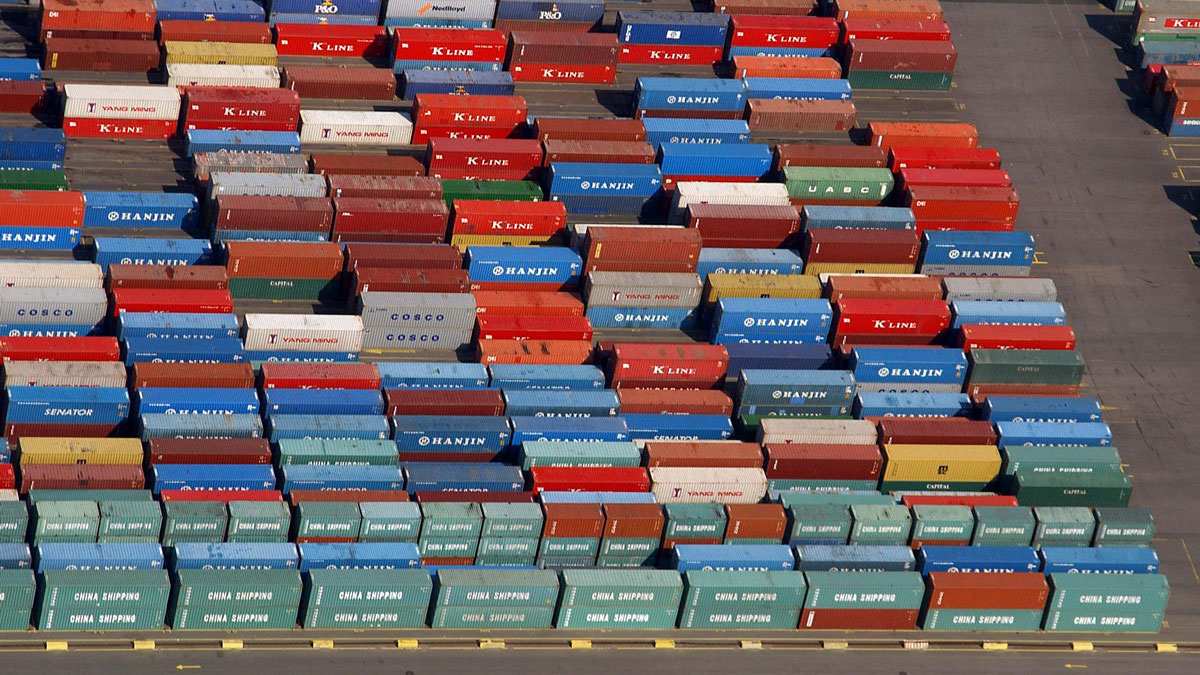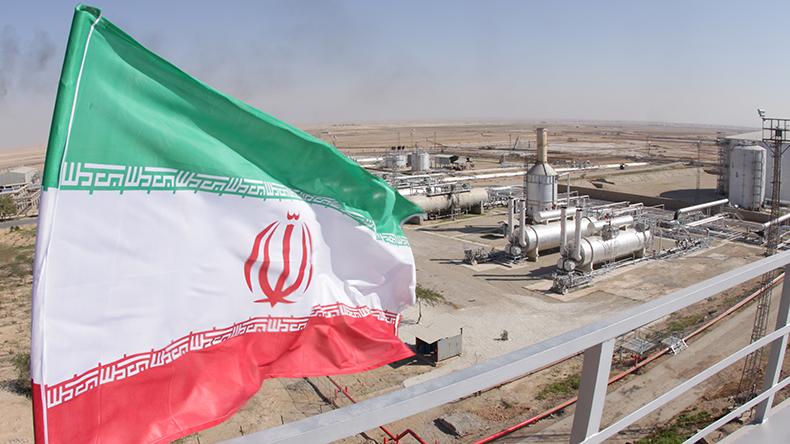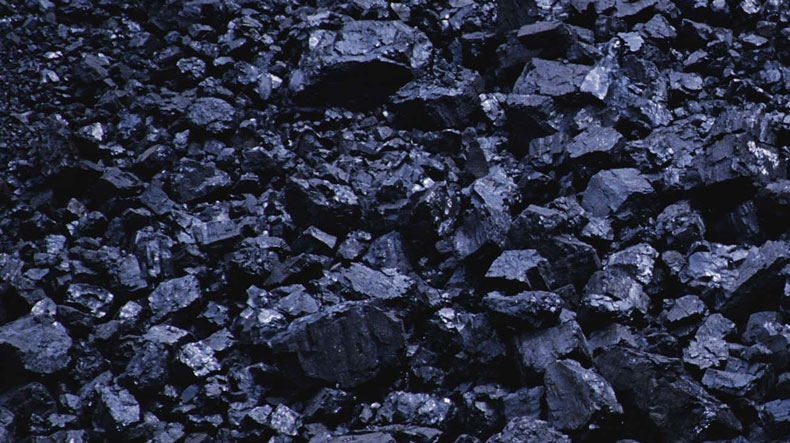Weekly briefing: Container lines boost finances, ‘caution’ over US sanctions guidance
Boxship sector looks to take ‘decisive steps’ in face of challenging business environment, China-Australia trade tensions a concern for dry bulk shipping
Pacific International Lines is in early negotiations with Singapore’s sovereign wealth fund over much-needed investment, while shipowners are urged to continue to take a risk-based approach to anything that touches on US sanctions against Iran and Venezuela despite new guidance
THIS weekly briefing provides sector-by-sector coverage of the coronavirus outbreak and its impact on shipping, direct from the Lloyd’s List team.
Follow the links within the text to the relevant news items in each market segment.
Containers
Containership owners have been busy making financial and operational decisions to mitigate the worst impacts of the coronavirus pandemic, ahead of what is expected to be a very tough second quarter of the year.
In a statement to the Singapore stock exchange, struggling boxship giant Pacific International Lines announced that it is in talks with state-owned Temasek Holdings affiliate Heliconia Capital Management over potential investment.
The move comes just weeks after PIL rebutted rumours that it is on the verge of bankruptcy due to rising debt levels and it has already sold off many of its assets, including more than a dozen vessels, its stake in Pacific Direct Line, and factories owned by its Hong Kong-listed container manufacturing subsidiary Singamas.
Although Heliconia and PIL have signed a six-month exclusivity agreement, negotiations are said to remain at a preliminary stage, with no certainty of reaching any deal. Nor is it clear whether any cash shot will be in the form of equity or debt, or some mix of the two.
How and why the Singapore government can provide aid to PIL, via its sovereign wealth fund proxy, is explored in an opinion piece by our Asia news desk editor Vincent Wee.
Elsewhere, Israeli container line Zim, the world’s 11th-largest carrier, narrowed its losses in the opening quarter of the year but described the current business environment as both “challenging” and “unprecedented”.
However, president and chief executive Eli Glickman was quick to stress that his company had taken “decisive steps” to cope with this new reality by “cutting costs, finding out-of-the-box operational solutions and switching smoothly to work-from-home mode”.
Capital Product Partners has boosted its liquidity by $38.8m after the closing of a sale and leaseback refinancing for three of its vessels. The deal with ICBC Financial Leasing was first announced last December but the transaction was delayed by the outbreak of the coronavirus virus in China.
The vessels in the transaction are the 9,288 teu trio CMA CGM Amazon and CMA CGM Uruguay, both built in 2015, and CMA CGM Magdalena, built in 2016.
Meanwhile, MPC Container Ships has said it is in talks with lenders about liquidity pressure caused by the coronavirus pandemic, putting the Oslo-listed company at risk of covenant breach.
“Following the coronavirus outbreak, the group is experiencing significantly reduced charter rates, and utilisation of its fleet due to lower containerised freight volumes globally,” it said in a statement. “These developments are expected to adversely impact the group’s liquidity and ability to be in compliance with covenants under some of its debt agreements in the short- to mid-term.”
Tankers & Gas
In mid-May, the US administration issued fresh guidance for global shipping to identify and detect deceptive and illicit practices used to evade sanctions.
This guidance was meant to put an end to the ambiguity surrounding previously released material related to the Trump administration’s ‘maximum pressure’ campaigns against Iran and Venezuela, which has translated into unilateral sanctions that prevent or hinder international trading and transport of energy commodities from both countries.
However, as discussed in last Friday’s podcast, ‘caution’ remains the watchword, with lawyers telling Lloyd’s List that shipping companies should continue to take a risk-based approach to anything that touches on international sanctions.
Lloyd’s List markets editor Michelle Wiese Bockmann also posits that under Trump the US Department of Treasury’s Office of Foreign Assets Control, known as Ofac, has evolved into an aggressive foreign policy tool using unilateral sanctions to deeply influence global energy commodities markets.
“The mercurial, ambiguous and inconsistent application of Ofac sanctions on Iran and Venezuela is a deliberate tactic to keep international shipping on its toes,” she wrote in an opinion piece published on Thursday.
Meanwhile, a Cosco Shipping very large crude carrier is reported to be stranded off South Africa, pending tug assistance.
A Lloyd’s List Intelligence casualty report shows 308,663 dwt Yuan Hua Hu encountering unidentified problems to the northeast of Port Elizabeth on May 25, 2020. Unconfirmed press reports suggested the tanker suffered an engine breakdown.
A spokesperson for shipowner Cosco Shipping Energy Transportation told Lloyd’s List the tanker was anchored while the cause of the incident was still being investigated. The spokesperson added that the 27 crew members on board were safe, and no oil spill had been found from the vessel, which was on a ballast voyage from Singapore.
Finally, a Stena product tanker quarantined in a Brazilian port since April 27 has been ordered to remain there until June 4, following another two cases of coronavirus being found on board.
A total of 12 out of the 26 crew of the Bermuda-flagged, 65,055 dwt Stena Premium have now tested positive and the vessel remains under quarantine at the port of Cabedelo, Brazil, according to Lloyd’s List Intelligence.
Dry Bulk
Trade tensions between China and Australia are mounting, which is casting a long shadow over the dry bulk shipping sector.
Beijing has announced informal quotas on coal imports just days after it unveiled new inspection rules for iron ore imports that appear to discriminate against Australian shipments.
Chinese customs authorities said the new supervisory rules, which take effect on June 1, will mean customs officials would inspect iron ore at the request of the trader or importer.
Although the new policy’s fine details remain opaque, the wording of the regulation suggests that it would let Brazilian imports sail through without inspections and customs would only check Australian batches. In the first three months of the year, Australia exported around 54m tonnes of iron ore to China despite the lockdown.
The move has triggered concern among iron ore traders, as it followed China’s decisions to ban Australian meat exports and impose tariffs on barley shipments.
The trade issues come amid growing political tensions between the two countries about the origins of the coronavirus pandemic, which has led to a sharp deterioration in their relations and is starting to disrupt trade.
Meanwhile, seaborne thermal coal trade is expected to be more than 5% lower in 2021 compared with 2019 levels, according to Stifel analyst Benjamin Nolan.
The second largest dry bulk commodity, used for power generation, made up 20% of all dry bulk trade last year but has steadily been losing market share to liquefied natural gas.
With the decline in electricity consumption around the world this year because of the coronavirus pandemic, coal-fired plants have been the first to come offline and in many cases are likely to be the last to come back online as electricity demand returns, Mr Nolan said, adding that 2019 is likely to mark the peak in the seaborne coal trade.
Meanwhile, Star Bulk Carriers, the largest US-listed owner of dry bulk vessels, has completed several refinancing deals with banks on vessels within its 116-vessel fleet, all but two of which have now been fitted with exhaust gas cleaning systems.
Chief executive Petros Pappas said that, in the face of the “unprecedented” disruption of trade caused by the coronavirus pandemic, the company’s main priorities have been the health of employees, the company’s financial health and serving customers without interruption.
“We believe we have fared well on all three of our goals,” he said. “Our next priority has been to increase our liquidity and strengthen our balance sheet through vessel refinancings.”



